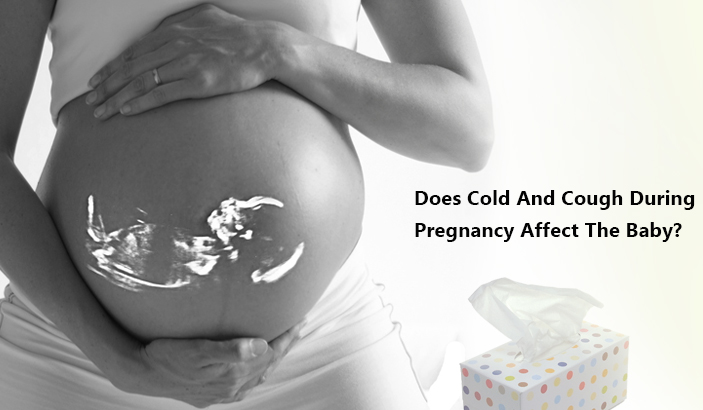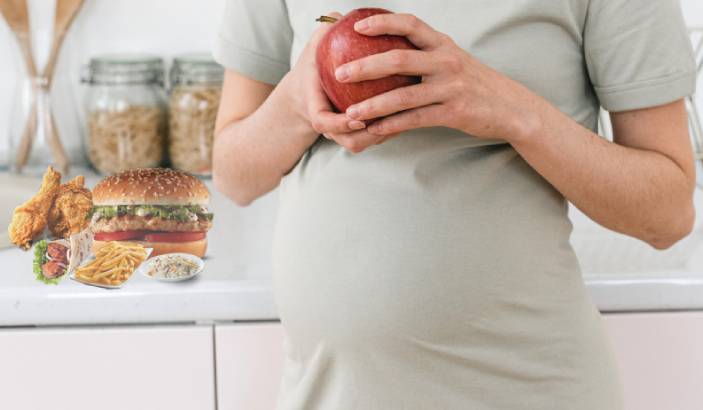Pregnancy is an extremely crucial time for every woman. Similarly, each pregnancy is peculiar as it comes with its own set of difficulties. Each woman’s body responds differently towards pregnancy.
Cough and colds are relatively common infections each one of us has experienced rather frequently. It is not uncommon for women to have cough and cold during pregnancy as well.
Cough and cold during pregnancy occur commonly due to viral infections. Cough and cold during pregnancy can range from a transient illness to a full-fledge systemic viral infections requiring hospitalization and leading to serious complications for the pregnant woman and her baby. A frequent question doctors come across from these pregnant women is – Does cough and cold during pregnancy affect the baby?
A pregnant woman can get cough and cold by one of the following ways
- If she inhales respiratory droplets when an infected person coughs or sneezes.
- Sharing food or water of an infected person
- Touching contaminated surfaces
A Pregnant Woman Can have The Following Signs and Symptoms Due to Cough and Cold:
- Fever with chills
- Generalized discomfort or malaise
- Body ache an joint pains
- Headache
- Nasal congestion and runny nose or a blocked nose
- Watery eyes
- Dry cough
Does Cough and Cold During Pregnancy Affect The Baby?
- Due to a lot of physiological and immunological changes occurring during pregnancy, the susceptibility of women to catch infections increases significantly and pregnant women tend to become severely ill.
- The susceptibility for serious illness during pregnancy increases during seasonal influenza periods and epidemics when cough and cold are rampant.
- Peri-natal outcomes range from simple cold and cough with no complications to pregnancy loss and birth defects.
- Untreated cough and cold during pregnancy increases the chances of having miscarriages, low birth-weight baby or preterm baby.
- Being infected with respiratory viruses which cause cough and cold during first trimester of pregnancy increases the risk of you baby to have birth defects.
- A pregnant woman is likely to transmit the infection to her unborn child through the placenta.
- Even though the causative viruses may not have a direct effect upon the baby; fever itself can be responsible for adverse effects on the developing baby.
- Therefore, it is quite evident that a cough and cold during pregnancy affects the baby right from the beginning of the period of infection.
- Respiratory viral infections causing cough and cold also tend to produce secondary bacterial infections of other organs if not treated on time.
- Researchers have also found that maximum maternal deaths due to cough and cold from viral infections occur during last trimester of pregnancy.
Treatment for Cough and Cold During Pregnancy:
Some over-the-counter medications which will relieve cold and cough and are declared safe during pregnancy are:
- Analgesics (pain killers): most of the over-the-counter cold medications contain some amount of analgesics which give relief from body ache or headache.
Studies have found these to be safe for cough and cold in all trimesters of pregnancy.
Use of acetyl-salicylic acid during the last trimester of pregnancy is associated with complications.
- Cough suppressants: these are also found in some of the over-the-counter cold medication and can be used safely during pregnancy.
- Decongestants: use of certain formulations of decongestants during the first trimester is associated with increased risk for birth defects.
- Expectorants: several studies have proven expectorants to be safe during pregnancy.
Majority of over-the-counter medications for cough and cold do not have any significant effect upon pregnancy; yet, they should be taken only when prescribed by a qualified doctor.
Home Remedies for Cough and Cold During Pregnancy:
To avoid any harmful effects, natural home remedies can be used to treat cough and cold during pregnancy. This is because, although rarely, over-the-counter medications can do more harm than good.
Some Home Remedies to Manage Mild Cough and Cold During Pregnancy by Yourself:
- Rest – take adequate rest. Avoid any kind of physical or mental exertion especially when you have cough and cold during pregnancy.
- Water – drink plenty of water to not just hydrate yourself, but to flush out the toxins from the body.
- Honey – you can have a spoonful of honey or along with warm water to soothe cough and sore throat.
- Warm drinks – you can opt for warm drinks like soups, broths, tea or coffee or warm water to reduce cough.
- Gargles – warm water gargles with a pinch of salt washes away bacteria or viruses from the throat and mouth.
- Lemon – lemon contains vitamin C and its acidic properties help to get rid of infection sooner. Fresh lemon juice can be had along with warm water and honey. This rink also helps to clear the lymphatic glands.
- Anti-inflammatory foods – natural anti-inflammatory foods like garlic, turmeric, ginger, green tea and fresh green leafy vegetables help to fight infection naturally.
When to Call the Doctor for Cough and Cold During Pregnancy:
Since cough and cold during pregnancy affects your baby adversely, it is important to contact your doctor immediately if you notice any of the following signs and symptoms especially during the first trimester:
- High grade fever not responding to medications
- Difficulty in breathing or breathlessness
- Dizziness or vertigo
- Persistent nausea or vomiting
- Severe abdominal pain or discomfort
- Reduced fetal movements (second trimester onwards)
How to Prevent Cough and Cold During Pregnancy:
Cough and cold during pregnancy affects your baby’s growth and development and often the entire pregnancy itself. Therefore, it is essential to follow certain precautionary measures like:
- Covering nose and mouth while travelling
- Avoid meeting a sick person during pregnancy
- Avoid touching the mouth and nose frequently
- Avoid going to crowded places especially during flu outbreaks
- Wash your hands or use a sanitizer before eating and after eating
- Sanitize or wash your hands after touching surfaces like tables or door knobs
- Have a balanced diet an rink plenty of water throughout pregnancy
Role of Vaccinations During Pregnancy:
- Flu vaccinations can be taken at anytime during the pregnancy. They help to keep severe viral respiratory illnesses at bay.
- Vaccinations also provide certain amount of immunity to your child during the first few weeks after birth.
- Vaccinations also make ensure that the chances of infecting your child are also reduced in case you have cough and cold.
Medically Reviewed By








